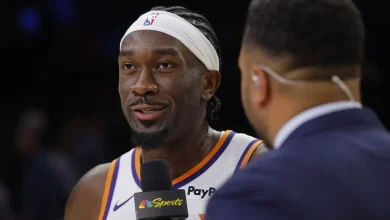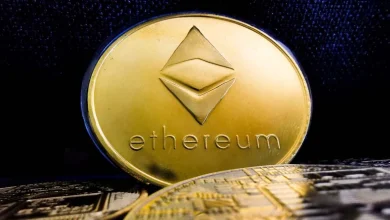Rejected Dog Henry Wins Global Wildlife Hero Award

Key Points
- Highlight Henry’s transformation from a rejected energetic Springer Spaniel to the Animal of the Year award recipient by IFAW for his conservation detection work.
- Describe Henry’s role with the UK National Wildlife Crime Unit, detecting scents of threatened species and aiding wildlife crime investigations.
- Emphasize Henry’s impact as both a crime deterrent and ecological monitor, celebrated at the 25th Animal Action Awards for his exceptional skills.
Henry, a black-and-white Springer Spaniel with boundless energy and an unmistakable zest for life, once faced an uncertain future. Rejected by five different homes for being, well, a bit too much to handle, Henry seemed destined to remain a “lost soul”—that is, until Louise Wilson of Conservation K9 Consultancy in Wrexham stepped in. At just eight months old, Henry was adopted by Louise, who saw not a problem pup, but a dog with untapped potential. Fast forward a decade, and Henry is now the proud recipient of the Animal of the Year award from the International Fund for Animal Welfare (IFAW), a recognition that celebrates unsung heroes in animal welfare. His journey from unwanted to indispensable is nothing short of remarkable.
So, what makes Henry so special? According to BBC News, Henry’s energetic nature, once seen as a liability, is now his greatest asset. Louise, who has worked with dogs detecting everything from firearms to explosives, quickly realized that Henry’s “unruly energy” could be channeled into something extraordinary. “He’s got so much energy and drive and as soon as we trained him for conservation detection we were able to give him focus,” Louise explained. With her guidance, Henry transformed from a restless rescue into a highly trained detection dog, specializing in conservation and wildlife crime.
Henry’s work is not just impressive—it’s vital. Partnering with the UK National Wildlife Crime Unit (NWCU), Henry helps track down some of the country’s most threatened species and the criminals who target them. His nose is legendary: Henry is able to detect seven different scents, including those of pine martens, otters, hedgehogs, and critically, birds of prey. This unique skill set enables him to locate stolen or killed birds, as well as the tiny monitoring tags that are often removed from these animals by those seeking to cover their tracks.
Detective Inspector Mark Harrison of the NWCU emphasized just how crucial Henry’s contributions have been to ongoing investigations. “If we don’t recover anything, the investigation grinds to a halt,” he told BBC News. In one particularly memorable search, Henry managed to find a tiny bird’s skull hidden deep beneath a layer of heather—an object invisible to the human eye. This kind of evidence can make or break a case, and it’s why Henry’s role is so valued by law enforcement and conservationists alike.
But Henry’s talents don’t stop at crime scenes. He’s also a key player in ecological monitoring, helping conservationists keep tabs on elusive species like water voles and hedgehogs. His ability to detect a range of scents means he can assist in both protecting threatened wildlife and gathering crucial data for conservation efforts. As Louise puts it, Henry’s “strong will” and relentless energy make him the perfect detection dog—a sentiment echoed by many who have witnessed his work firsthand.
Despite not being an official police dog, Henry’s impact on wildlife crime investigations has been profound. According to Detective Inspector Harrison, intelligence gathered by the NWCU suggests that offenders are “scared and worried” by the work being done by animals like Henry. The mere presence of a highly trained detection dog at a crime scene can act as a powerful deterrent, making would-be criminals think twice about targeting protected species.
Henry’s achievements were celebrated on a grand stage at the 25th Animal Action Awards, held in London on Thursday, October 16, 2025. The event, organized by IFAW, brought together human and animal conservation heroes from around the world. Wildlife presenter Michaela Strachan, who had the honor of presenting Henry’s award, described him as a “superdog” and praised the dedication required to train an animal of his caliber. “To be able to train a dog like Henry to do the work that he does needs an enormous amount of time, patience, dedication and commitment,” Strachan said. “The two of them together are a formidable team for wildlife protection.”
Louise’s journey with Henry is emblematic of a broader trend in conservation: the growing use of specially trained dogs to tackle wildlife crime. As BBC News notes, Louise has worked around the world with dogs trained to detect everything from tobacco to explosives, but conservation detection is a field that’s rapidly gaining recognition. Dogs like Henry are becoming invaluable allies in the fight to protect vulnerable species and bring wildlife criminals to justice.
It’s hard not to be moved by Henry’s story. Here is a dog who, by all accounts, could have been overlooked forever—a casualty of too much energy in a world that often values calm and conformity. Yet, in the hands of the right person, that same energy became a superpower. Henry’s ability to focus, his relentless drive, and his deep bond with Louise have turned him into a true hero of the animal world.
And it’s not just about solving crimes or winning awards. Henry’s work has a ripple effect, inspiring others to see the potential in so-called “problem” animals and to recognize the critical role that detection dogs can play in conservation. His story is a testament to the power of second chances—and the incredible things that can happen when someone refuses to give up on a misunderstood soul.
As the applause faded at the Animal Action Awards and Henry trotted off the stage, tennis ball in mouth and tail wagging, it was clear that his journey was far from over. For Henry and Louise, the work continues: tracking, sniffing, and protecting the wild creatures that can’t protect themselves. Their partnership stands as a reminder that sometimes, the qualities that make us different are the very ones that can change the world.





